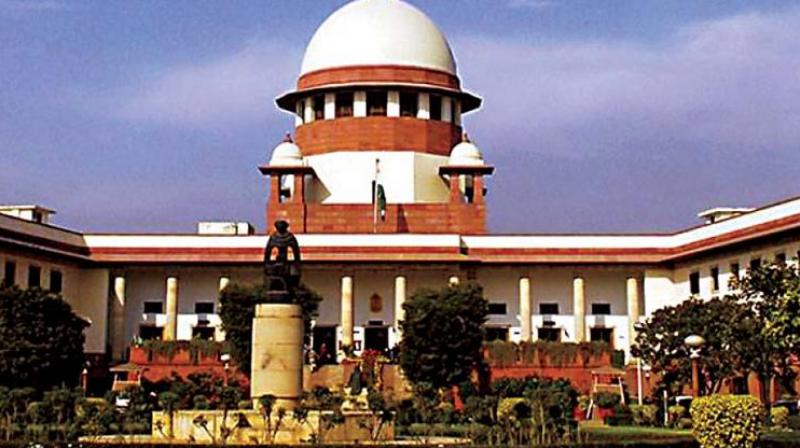Telangana, Andhra Pradesh may not have their choice for Director General of Police

Hyderabad: The Telangana state and Andhra Pradesh governments may find it difficult to push through appointments of their choice for Director General of Police, following the Supreme Court disallowing five states who had sought modifications of the apex court order on selection and appointment of the heads of the police force.
The two states had passed their own laws to appoint the DGP. The Supreme Court had in the Prakash Singh case had specified a procedure in which each state had to send a panel of names of officers eligible to head the police force from which the UPSC would return a short list. The states could pick one name from the short list.
Andhra Pradesh was the first among the two states to amend the Selection and Appointment of DGPs (Head of Police Force) Bill. In December 2017 the AP government brought an ordinance to pave the way for the appointment of Mr M. Malakondiah as head of the police force. The AP government later moved the Bill and the Assembly approved it.
In Telangana, the state government the Assembly amended the Telangana Police Bills, 2018 to enable the state government to select the head of police force on its own without sending the list of names to the Union Public Service Commi-ssion. Mr M. Mahendar Reddy, a 1986 batch IPS officer, was later appointed the head of police force. His tenure will last till 2022, making it one of the longest.
On the appointment of the state police chief, the TS Act says, “The Director General of Police (head of the police force) shall be selected and appointed by the state government from among the officers of the Indian Police Service in the rank of DGP on the basis of their length of service, very good history of service, professional knowledge and ability to lead the police force in the state. The DGP shall have a minimum tenure of two years, subject to retirement in accordance with the rules made under the All India Service Act, 1951.”
Former AP special chief secretary Mohammad Shafiq-uz-Zaman said, “If anyone challenges the Act of the two states on the appointment DGPs of their choice by bypassing the SC order, the courts will have to decide on the legality of the legislation.” He said that most states were found flouting the norms.
Mr Shafiq-uz-Zaman alleged that the UPSC had been doing what the governments wanted. He said governments had been flouting norms and a few ineligible officers had bagged the top post of the state police.
“In many cases, juniors were appointed over seniors like the government wanted. In one case Mr B. Prasad Rao who was appointed DGP through the UPSC was removed from office before his two-year term ended to pave way for a new DGP of the state’s choice,” Mr Shafiq-uz-Zaman alleged.
A senior officer with the TS police said, “The DGP’s appointment was the state’s decision outright. No officer may challenge the state decision out of fear.”

